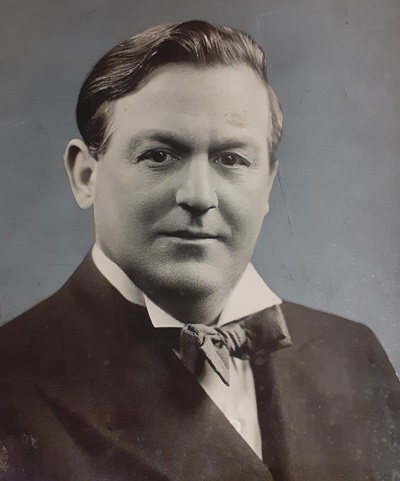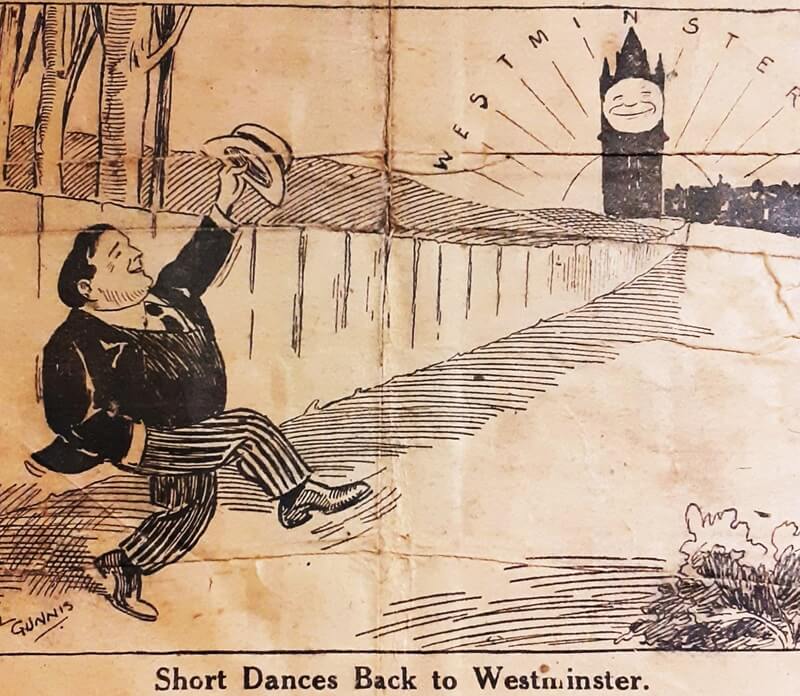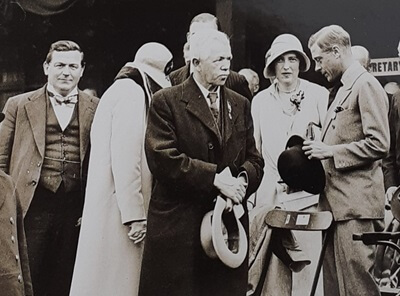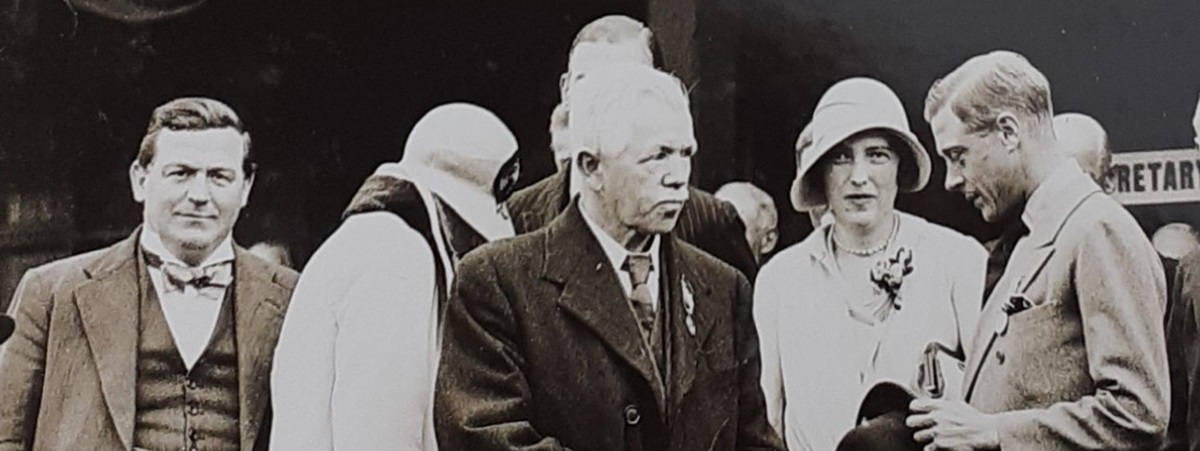Alfred Short, Poetry loving socialist MP who died tragically young
By Alison Bailey
In August 1938, 55-year-old Alfred Short, who lived at Hyde Heath, died at the Royal Free Hospital. He was a Labour MP and newspapers throughout the country covered his death as he seems to have been respected across all political parties. A working-class hero, he graduated from the factory floor to serve as a minister in the second Labour Government. He only received an elementary education but studied law in his free time and was the first Labour MP to be called to the Bar whilst still fulfilling his parliamentary duties. His love of poetry meant that he could recite Tennyson and Longfellow at length and liked to finish election meetings with a song. A keen pigeon-fancier he once organised a race of over 100 pigeons from Palace Square to his constituency in the Midlands.
Alfred Short (1882-1938)

Alfred was born into a labouring family in Gloucester, the youngest of four children to Elijah and Mary Short. At times his father struggled for work. Alfred later said: “we lived a typical working class life, devoid of comfort, always a struggle, unemployment, poverty, and want ever on the threshold”. His father worked as an iron founder and the family moved to Attercliffe in Sheffield, the undisputed iron, steel and cutlery capital of the world.
Elijah Short was a lifelong trade unionist and one of the first members of the Independent Labour Party. He encouraged his sons to get involved in socialism from a young age, attending meetings and delivering political pamphlets.
Alfred later said that his determination to succeed derived from a childhood accident. He fell on the fire at home and burned himself so badly that he always had a scar on his face. Other boys used to mock his disfigurement, and this made him determined to do better than any of them.
From boilermaker to town councillor
Alfred appears to have applied “thoroughness and energy” to everything he did. He left the Elementary Council School in Attercliffe when he was 14 and started an apprenticeship as a boilermaker for 5s a week. He soon excelled in his trade and becoming an expert in the art of plate levelling. Later he worked as a trade union official. He was secretary of the Sheffield branch of the Boilermakers’ Society for nine years, chairman of the Yorkshire District Committee and secretary of the Sheffield Trade and Labour Council. From 1913-19 he served on Sheffield City Council, as the first Labour member for Attercliffe ward. During the war he was a member of the Sheffield Munitions Committee and visited the front in France.
The Bar
Like many Labour leaders, trade unionist activities were the stepping stone to a parliamentary career and in 1918 Alfred was elected Member of Parliament for Wednesbury in the Black Country. With no additional income however, running a second house in London was a serious drain on his resources. Describing himself as “poor but proud” he decided to study law to equip him better for public life and improve his finances.

He found time between his duties as MP and as a trade union secretary to study for the Bar. He later explained “the work had to be done. In the train, on the tramcar, in the bus, in the Library of the House of Commons, and in the quiet of my private room, I took advantage of every spare moment and became a slave to my books. After the House had risen, I often used to go to my rooms to ‘swot’ until the early hours of the morning”. After passing his final exams, he was called to the Bar in 1923. He gratefully acknowledged the encouragement and support that he had received from other MPs who worked in the legal profession. He was also grateful to his wife Mary who took a deep interest in her husband’s work. He had married teacher Mary Mellors in 1912. From Worksop in Nottinghamshire, Mary had studied at the Whitelands Teacher Training College in Chelsea. A daughter, also Mary, was born in 1917 and she worked as her father’s secretary after finishing her education.
MP
Short in stature, as well as by name, Alfred was described as one of best political fighters of his age and a “veritable political Napolean when fighting an election”. According to the many articles published after Alfred’s death, he was a great success in Parliament. He maintained a “vigilant interest in the welfare of his constituency” and was one of the most active members at Prime Minister’s question time. Under Prime Minister Ramsay MacDonald’s socialist government, he served as Under Secretary for Home Affairs from 1929 to 1931, when he lost his seat in the landslide Labour defeat. He then worked as the national secretary of a section of the Transport and General Workers Union until he was re-elected as the Labour MP for Doncaster in 1935.

In Doncaster Alfred was a very popular constituency MP, with even the local conservative paper describing him as: “a likeable personality, adaptable, accessible, genial, full of good humour, a ready speaker and a good companion at social gatherings”. They continued: “he made many friends. No appeal was disregarded, no letter went unanswered, no local interest was outside his sympathy and his attention. There are many good Conservatives today who will feel that through his passing they have lost a man whose friendship they were proud to possess”.
Hyde Heath

After being re-elected to parliament in 1935 Alfred decided to move the family from Harrow to the more rural setting of Hyde Heath, just outside Amersham. The move to Orchard Cottage was life-changing for his daughter Mary, who fell in love with the boy next door at Weedon Hill farm. Mary and George Nash became engaged when she turned 20. Sadly, Alfred died before the wedding after being ill for some months with pneumonia. The wedding took place 17 November 1938 on the day of the Doncaster by-election, caused by Alfred’s death.

